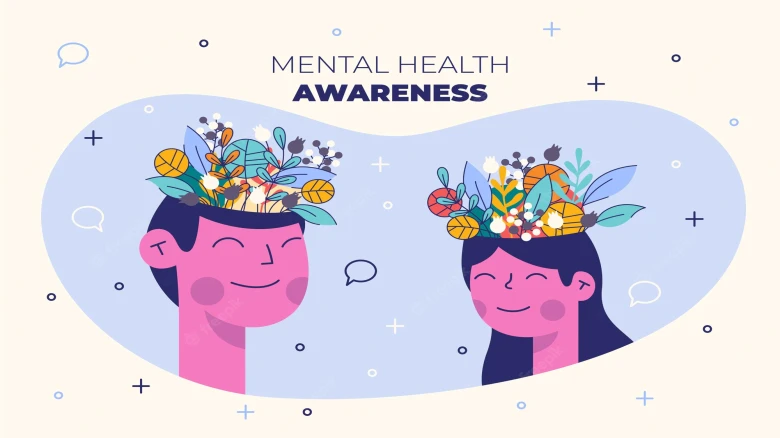National

This research is especially timely because mental illness is on the rise among Canadian postsecondary students, and mental health transfers (when a student in a mental health crisis is transferred from a university health clinic to a hospital for emergency psychiatric assessment and/or care) are becoming more common.
color:#333333">Digital Desk: According to a new CAMH-led qualitative study
published today in the journal CMAJ Open, the likelihood that police will
become involved in the care of a student who seeks help for their mental health
on campus at an Ontario university health clinic depends on which university
they attend.
The study is thought to
be the first of its kind in the world to conduct in-depth interviews with
physicians in order to examine policies and processes for transferring students
experiencing mental health emergencies from university clinics to hospitals.
Investigators discovered that some Ontario universities require the use of
police restraints in all circumstances when students require emergency mental
health hospital care, whereas others have policies stating that handcuffs are
only used as a last resort in rare circumstances.
"We sought
university policies that would allow students in need of emergency mental
health care to be transferred to a hospital in the most dignified manner
possible." We hoped that such policies would serve as models for other
universities." The study's lead author is Dr. Andrea Chittle, a family
physician who previously worked in a university health clinic. "We
discovered that handcuffs are routinely used at some universities."
Students are always transported to the hospital in handcuffs."
This research is
especially timely because mental illness is on the rise among Canadian
postsecondary students, and mental health transfers (when a student in a mental
health crisis is transferred from a university health clinic to a hospital for
emergency psychiatric assessment and/or care) are becoming more common.
Between July 2018 and
January 2019, the authors interviewed 11 physicians at nine university health
clinics in Ontario. To allow physicians to speak candidly about hospital
transfer policies for students with mental health emergencies, the interviews
were kept confidential and the clinics were not identified. When a student
needed to be transferred to the hospital, police were always called at five of
those clinics. The police policy at two of those clinics was to routinely use
handcuffs during student transfers to hospitals.
color:#333333">Surveyed physicians at clinics where student handcuffing was
common expressed concerns that it was traumatising for students, potentially
discouraging them from seeking mental health services in the future.
color:#333333">"Being handcuffed and loaded into a police cruiser appears
brutal and traumatic for the patient, and sends all the wrong messages about a
caring, supportive environment," said one interviewee.
color:#333333">Dr. Andrea Chittle, CAMH Emergency Department Psychiatrist
Juveria Zaheer, and Shane Neilson, a student health clinic physician, worked
together on three studies that looked at mental health transfer policies at
Ontario universities.
In their first paper, they raised the issue of police handcuffing of students
in mental distress. The second paper looked at the policies and procedures for
transferring people in mental health crisis from community-based clinical
settings to hospitals. The most recent study investigated the decision to
involve the police and use handcuffs during mental health transfers, as well as
alternatives.
The researchers discovered that non-clinical factors such as a lack of
understanding of staff roles and responsibilities, human resource constraints,
and the staffing implications of long emergency department wait times
frequently lead to the involvement of police and the use of restraints when
students require a transfer to hospital for psychiatric assessment.
"Before I was in
the system, I had no idea how intertwined policing and mental health
were," said Gina Nicoll, an undergraduate university student and study
contributor who has lived experience with mental illness, including being
transferred to hospital for assessment by police. "It was simply
depressing, and I felt helpless and defeated. It made me feel as if I was doing
something wrong just by being sick, and that I was being prosecuted for
it."
Routine
police involvement in student mental health transfers to hospitals, according
to the authors, is harmful. They recommend involving police only in extreme
cases where there is a high risk of a student fleeing or becoming violent
during the hospital transfer. They advocate for the development of
province-wide policies in collaboration with university administrations,
municipal and provincial governments, hospitals, police departments, and people
with lived experience of mental illness in order to reduce police use of
restraints during mental health transfers from Ontario university clinics.
Dr. Chittle continued,
"I hope that a public debate about the role of police on campus will
persuade universities to reconsider their policies and procedures for students
in mental health crisis." A more flexible procedure for hospital transfers
was developed as a result of her and her co-authors' previous work at the
University of Guelph examining the practise of routinely engaging police and
routine use of handcuffs. Simultaneously, changes in police policies permitted
the use of restraints at the discretion of officers transferring. "I believe
society is moving away from police involvement in mental health care,"
said Dr. Chittle. "Pilot projects are being conducted to test non-policing
models of mental health crisis care. My hope is that we will go in this
direction."
Leave A Comment